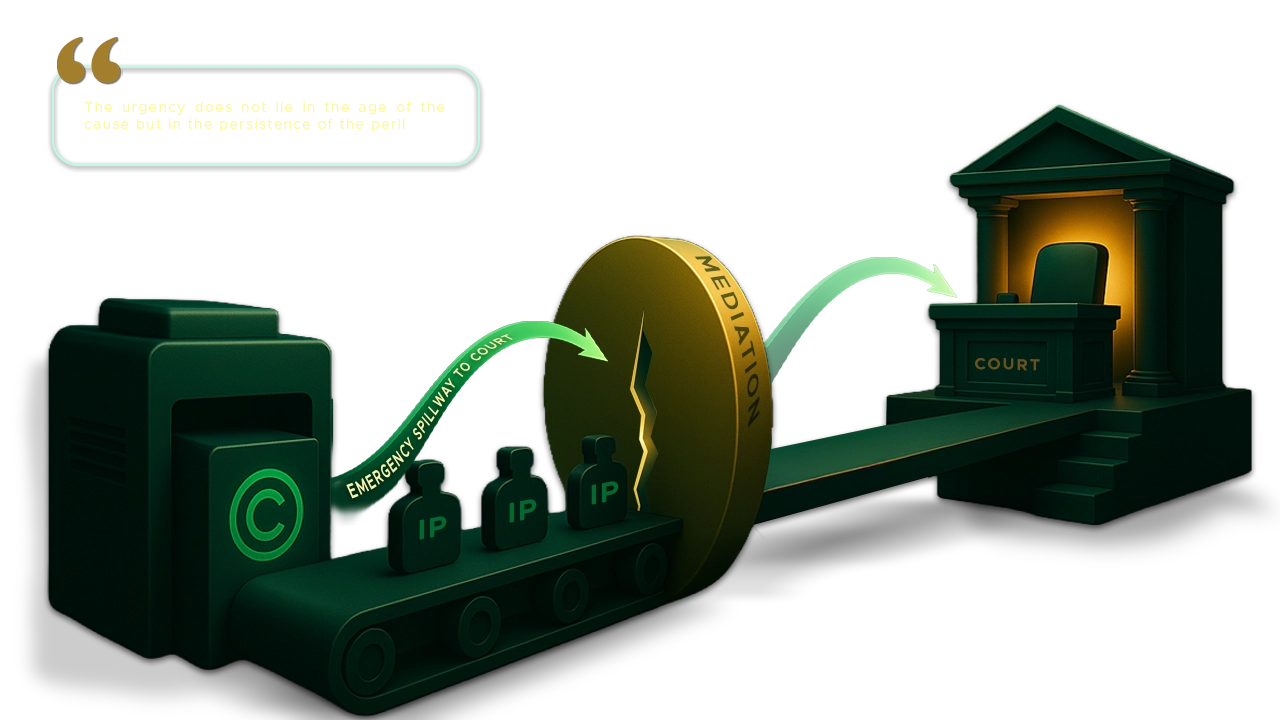Introduction
The enforcement of arbitral awards in India, a process intended to be streamlined and efficient under the ACA1, recently witnessed a significant clarification by Justice Jasmeet Singh in Anglo-American Metallurgical Coal Pvt. Ltd. Versus Mmtc Ltd2 from the Delhi High Court, the court addressed a crucial question regarding the permissible avenues for challenging an award at the enforcement stage.
The core issue revolved around whether a party, having failed to successfully contest an arbitral award under the specific provisions of Section 34 of the ACA, could then raise objections to its execution by invoking the broader provisions of Section 47 of the CPC3.
The court, however,firmly rejected the notion that Section 47 of the CPC could be employed to challenge the execution of an arbitral award that had already withstood, or for which the time had lapsed for, a Section 34 challenge. The court’s reasoning was anchored in the fundamental principle that the ACA is a self-contained legislative framework, meticulously crafted to establish a robust and autonomous mechanism for dispute resolution with minimal judicial intervention.By design, the ACA provides a comprehensive set of procedures, and recourse to general laws, such as the CPC, is intended to be limited unless explicitly provided within the Act itself.
The judgment underscored that one of the cornerstones of the ACA is the principle of limited judicial interference, a tenet repeatedly affirmed by the Supreme Court, as exemplified in the case of Vidya Drolia v. Durga Trading Corpn4. In this seminal ruling, the apex court emphasized that party autonomy, a guiding principle in arbitration, goes hand in hand with restricted court intervention, forming the bedrock of modern arbitration law. Section 5 of the ACA explicitly embodies this principle, employing a non-obstante clause to restrict judicial intervention in matters governed by Part I of the Act, except where specifically provided within that part.
Delving deeper into the statutory framework, the High Court meticulously examined Section 36 of the ACA, which governs the enforcement of arbitral awards. This section stipulates that once the time for challenging an award under Section 34 has expired or a Section 34 challenge has been dismissed, the award shall be enforced in accordance with the provisions of the CPC “as if it were a decree of the court.” The judgment debtor in the present case had argued that this very phrase granted them the liberty to file objections under Section 47 of the CPC, akin to challenging the execution of a decree passed by a civil court.
However, Justice Singh refuted this interpretation,drawing upon the Supreme Court’s pronouncements in cases like Paramjeet Singh Patheja v. ICDS Ltd5. and Union of India v. Vedanta Ltd6. These judgments have clarified that the legal fiction created by the phrase “as if it were a decree of the court” in Section 36 is limited solely to the manner of enforcement. It does not, the court emphasized, transform an arbitral award into a decree for all intents and purposes under all statutes. The Supreme Court in Paramjeet Singh Patheja specifically held that an arbitral award lacks the essential characteristics of a decree, as it is not rendered in a suit commenced by a plaint nor adjudicated by a civil court. The “as if” clause merely directs the executing court to utilize the procedural mechanisms available under the CPC for the purpose of enforcing the already adjudicated and finalized arbitral award.
The Delhi High Court further reasoned that permitting objections under Section 47 of the CPC at the enforcement stage would effectively open a second window for challenging the award on merits, a scenario the legislature consciously sought to avoid. This would directly undermine the carefully calibrated grounds for challenge enshrined in Section 34 of the ACA and render the finality granted to an award under Section 35 meaningless. Such an interpretation would also frustrate the very object of the ACA, which is to provide a swift, efficient, and less cumbersome alternative to traditional litigation. Allowing repeated challenges would inevitably lead to delays and protracted legal battles, defeating the purpose of streamlining dispute resolution through arbitration.
Reinforcing its stance, the court referred to a coordinate bench decision in Hindustan Zinc Ltd. v. National Research Development Corporation7, which had addressed the same issue. The coordinate bench had unequivocally held that a challenge to an arbitral award, including on grounds of being a “nullity” or otherwise illegal, can only be mounted within the confines of Section 34 of the ACA. The grounds for assailing an award are exhaustively listed in Section 34(2), and the Act does not envisage or sanction a dual or independent challenge during enforcement proceedings. This conclusion, the coordinate bench had noted, is fortified by a harmonious reading of Sections 5, 35, and 36 of the ACA.
In further support of its view, Justice Singh also cited decisions from other High Courts, including Bellary Nirmithi Kendra v. Capital Metal Industries8 (Karnataka High Court) and State of U.P. v. RajVeer Singh9(Allahabad High Court), all of which echoed the principle that challenges to the merits of an arbitral award are confined to Section 34 proceedings. The court distinguished the cases relied upon by the judgment debtor, noting that they either pertained to pre-1996 Act arbitration or involved situations where the Section 34 petition was dismissed on technical grounds (like being time-barred) rather than on merits.
Ultimately, the Delhi High Court concluded that allowing objections under Section 47 of the CPC in an application for the execution of an award under Section 36 of the ACA would be antithetical to the legislative intent of the ACA, which prioritizes finality and minimal judicial interference.The court firmly held that once an arbitral award has survived the challenge period or a challenge under Section 34 has failed on merits, the scope of judicial intervention is limited to facilitating its enforcement as if it were a decree of the court, without reopening the substantive merits of the dispute.
Conclusion
The Delhi High Court’s pronouncement serves as a significant reaffirmation of the pro-arbitration stance embedded within the Arbitration and Conciliation Act, 1996. By explicitly barring the invocation of Section 47 of the CPC to challenge the execution of an arbitral award that has already passed the stage for a Section 34 challenge, the court has reinforced the legislative intent of ensuring finality and minimizing judicial intervention in the arbitral process.
This judgment effectively closes a potential loophole that could have been exploited to protract enforcement proceedings and re-open settled disputes under the guise of execution objections. The emphasis on the self-contained nature of the ACA and the limited scope of judicial interference will likely lead to a more streamlined and efficient enforcement regime for arbitral awards in India.
The future implications of this judgment are considerable. It is expected to reduce delays in the execution of arbitral awards, fostering greater confidence in arbitration as a viable and effective dispute resolution mechanism. Businesses and individuals opting for arbitration can now anticipate a more predictable and timely enforcement of favorable awards, without the looming threat of a second layer of challenge under the CPC. However, this clarity might also pose a critical question in the future: in exceptional cases where egregious issues like fraud, which could not have been reasonably discovered during the Section 34 stage, come to light post the challenge period, how will the courts balance the principle of finality with the imperative of ensuring justice and preventing the enforcement of patently unjust awards? This remains a potential area for future judicial consideration and could necessitate a nuanced approach to truly exceptional circumstances.
Citations
- Arbitration and Conciliation Act, 1996
- Anglo-American Metallurgical Coal Pvt. Ltd. Versus Mmtc Ltd OMP (ENF.) (COMM.) 19/2018
- Code of Civil Procedure, 1908
- Vidya Drolia v. Durga Trading Corpn., (2021) 2 SCC 1
- Paramjeet Singh Patheja v. ICDS Ltd., (2006) 13 SCC 322
- Union of India v. Vedanta Ltd., (2020) 10 SCC 1
- Hindustan Zinc Ltd. v. National Research Development Corporation, 2023 SCC OnLine Del 330
- BellaryNirmithi Kendra v. Capital Metal Industries; 2024 SCC OnLine Kar 51 (Karnataka HC)
- State of U.P. v. RajVeer Singh; 2024 SCC OnLine All 1094
Expositor(s): Adv. Anuja Pandit






